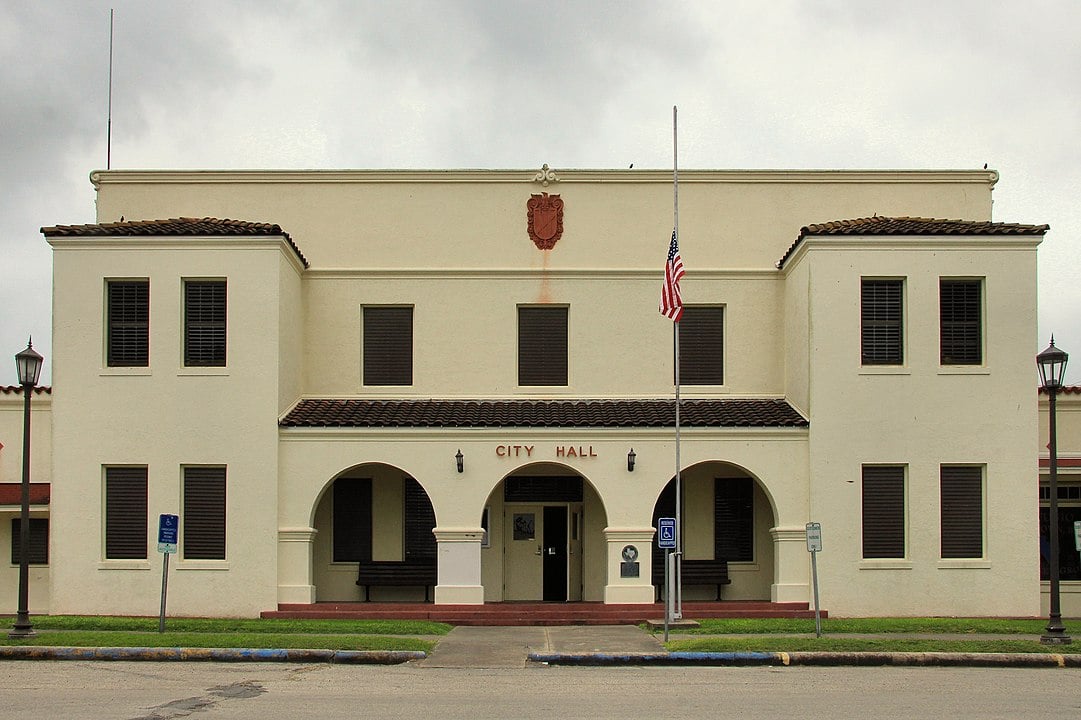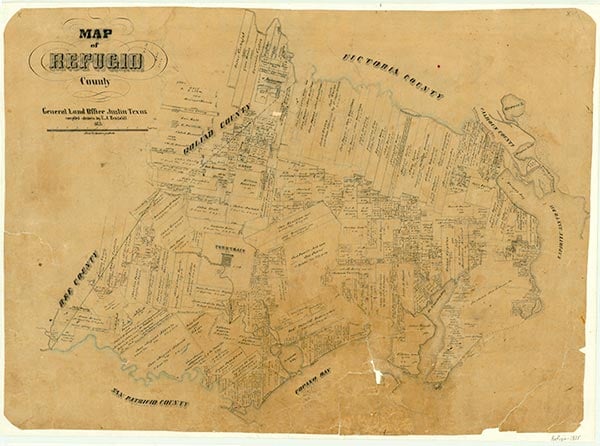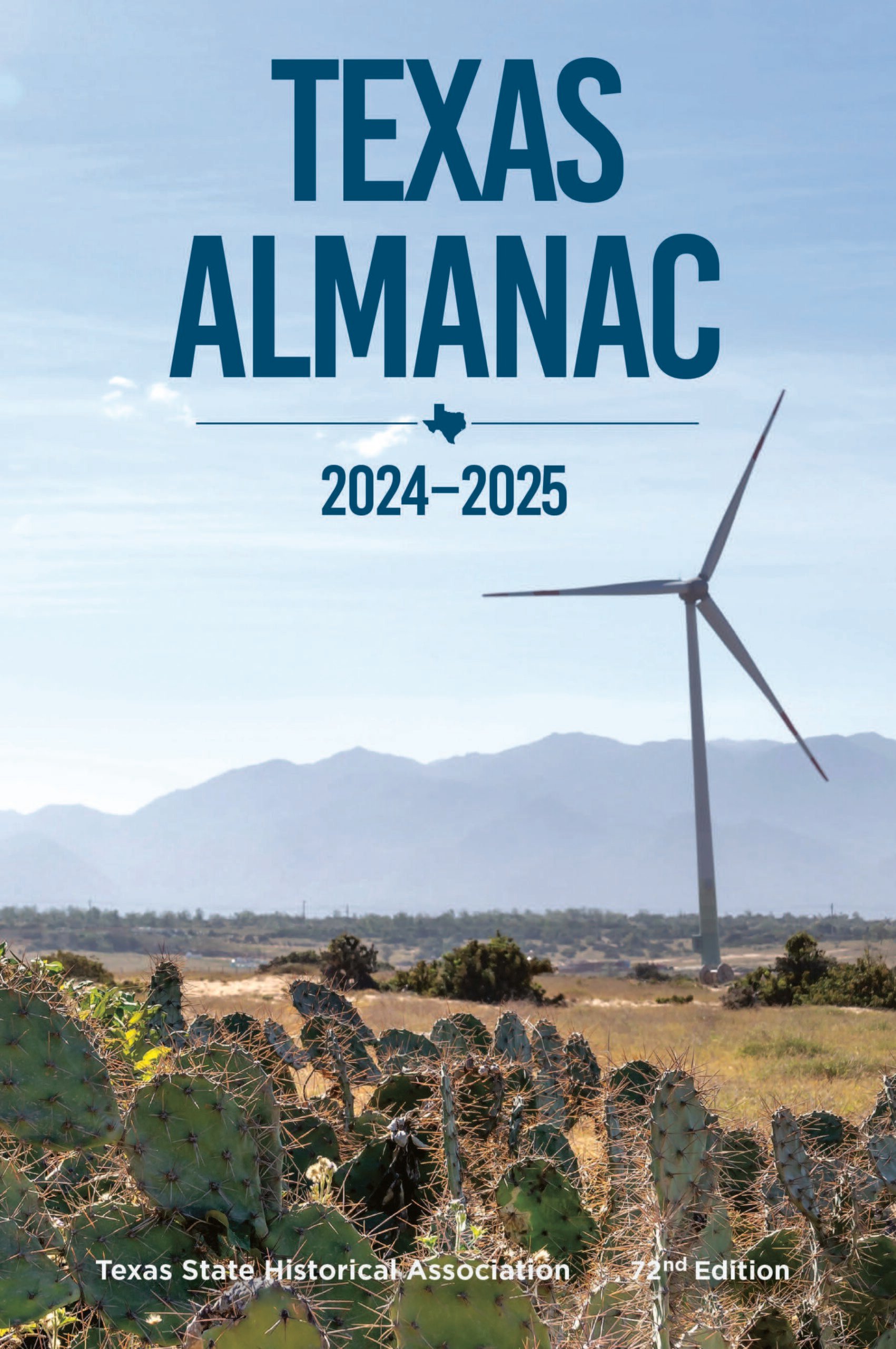Refugio

Refugio, Texas

Refugio, the county seat of Refugio County, is on the north bank of the Mission River at the intersection of U.S. highways 183 and 77 and State Highway 202. The site of the present city was a favorite camping ground of the Karankawa Indians, who developed a permanent village there known to the Spanish as Paraje de los Copanes (Place of the Copanes, a Karankawan tribe). The Spanish probably knew of the settlement as early as 1749, and according to some accounts José de Escandón wanted to establish a pueblo and presidio there. In 1795 the Nuestra Señora del Refugio Mission was moved to the site. The Refugio Mission, the last Spanish mission to be secularized after the area became part of Mexico, operated continuously until February 1830. By then, at least 100 Mexicans lived on ranchos in the immediate vicinity, and a village existed around the mission. In 1831 James Power and James Hewetson acquired the rights to the old mission building and the town that surrounded it, and that same year the villa of Refugio was officially established. The villa became the center of the Refugio Municipality in 1834. On March 14, 1836, during the Texas Revolution, the battle of Refugio was fought at the town; most of the inhabitants subsequently fled to Victoria, Goliad, and other areas to avoid retribution. When Refugio County was organized after Texas gained its independence, Refugio became the unofficial county seat, but the town had been almost completely destroyed, and most of its former residents had not returned. The population remained depleted until about 1842 because of the continuing threat of Mexican raids into the area. Although Refugio was first incorporated in 1837, it had no government until 1842, and no post office was established there during the republic period. In 1842 the town was reincorporated, and settlers began to return to the area, and a number of them established farms on the land surrounding Refugio. A post office was established at Refugio in 1847. In 1859 the ruins of the old mission were still the most distinguishing feature of the town, which by that time included three dry-goods stores, a boardinghouse, three churches, and two schools. The town declined after the beginning of the Civil War. The city council stopped holding meetings in 1861; by the end of the war the town had almost disappeared, and only a few people lived there. Refugio had no government at all until 1868, when Moses Simpson moved in from Copano and performed the role of a council by himself. In the late 1860s and early 1870s saloons and gambling houses were established in Refugio, giving it a reputation as a "free and easy" place, which attracted gamblers, drifters, and criminals. In 1869 the county seat was moved from Refugio to St. Mary's, and then to Rockport.
In 1871, when Aransas County was separated from part of Refugio County, the government of Refugio County returned to Refugio. The town's council was reorganized in 1874, and Refugio began to revive as it became a marketing and shipping center for the hides, wool, cotton, and livestock produced in the area. By 1884 the town had grown to a population of about 1,000 and included a wooden courthouse, three churches, and a public school. Though the population of the surrounding county declined during the 1880s, Refugio continued to grow during this period, and by 1890 there were an estimated 1,100 people living there. That year the town had Catholic and Baptist churches, a convent, a parochial school, two public schools (one for White students, one for Blacks), and two hotels. Without a railroad Refugio had difficulty competing with other towns in the region, however, and shrank during the 1890s; its estimated population dropped to 800 by 1892 and to 600 by 1896; in 1900 there were 699 people living there. About 1902 the St. Louis, Brownsville and Mexico Railway began making surveys of the area, and fearing that the railroad would bypass their town unless paid a $30,000 "bonus," leading citizens organized to raise the money. Ultimately, the town paid the railroad $18,000 in cash and half of the town's common lands for a railroad connection, and by December 1905 the tracks had been laid and a depot built about a mile from the city. A description of the town in 1905 mentioned the convent, a hotel, two saloons, a blacksmith shop, about five stores, the wooden county courthouse, and a "handful" of dwellings.
John Leffler | © TSHA

Adapted from the official Handbook of Texas, a state encyclopedia developed by Texas State Historical Association (TSHA). It is an authoritative source of trusted historical records.
Belongs to
Refugio is part of or belongs to the following places:
Currently Exists
Yes
Place type
Refugio is classified as a Town
Associated Names
- [-Mission]
- (Waxford)
Location
Latitude: 28.30736310Longitude: -97.27499500
Has Post Office
Yes
Is Incorporated
Yes
Population Count, 2021 View more »
2,790


